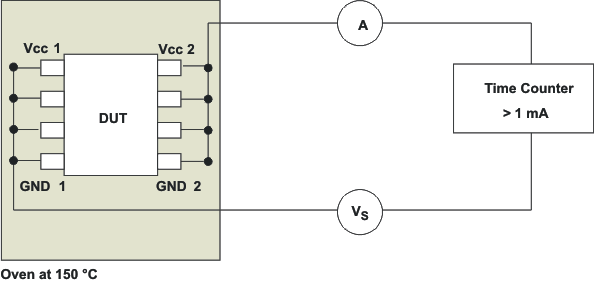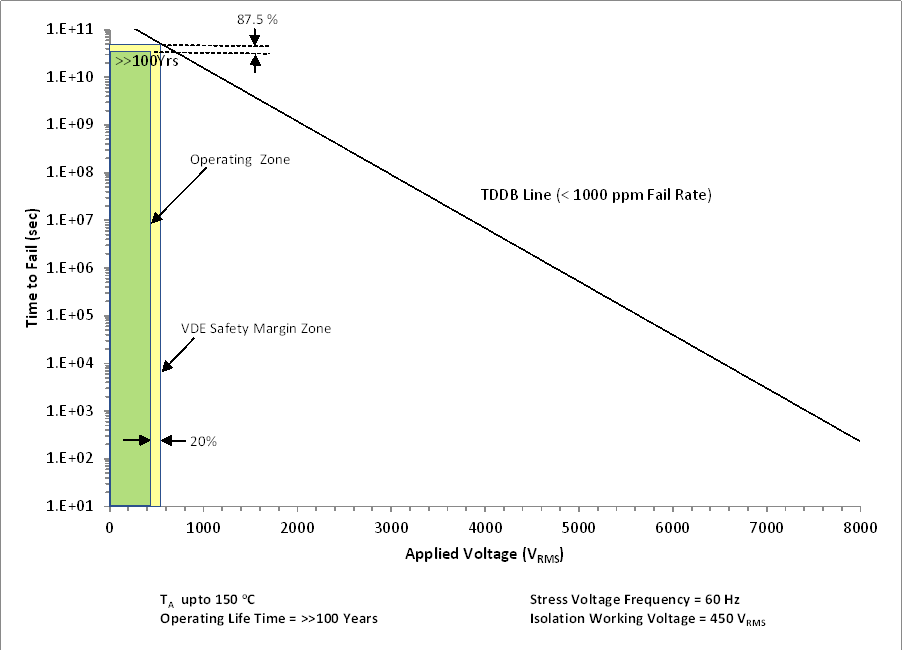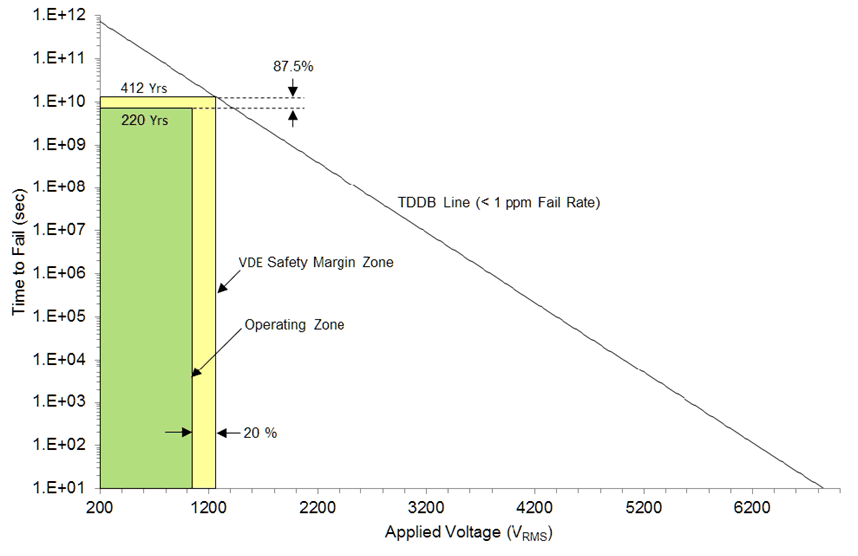SLLSFF5H January 2020 – May 2022 ISO6720-Q1 , ISO6721-Q1 , ISO6721R-Q1
PRODUCTION DATA
- 1 Features
- 2 Applications
- 3 Description
- 4 Revision History
- 5 Description (continued)
- 6 Pin Configuration and Functions
-
7 Specifications
- 7.1 Absolute Maximum Ratings
- 7.2 ESD Ratings
- 7.3 Recommended Operating Conditions
- 7.4 Thermal Information
- 7.5 Power Ratings
- Insulation Specifications
- 7.6 Safety-Related Certifications
- 7.7 Safety Limiting Values
- Electrical Characteristics—5-V Supply
- 7.8 Supply Current Characteristics—5-V Supply
- 7.9 Electrical Characteristics—3.3-V Supply
- 7.10 Supply Current Characteristics—3.3-V Supply
- 7.11 Electrical Characteristics—2.5-V Supply
- 7.12 Supply Current Characteristics—2.5-V Supply
- Electrical Characteristics—1.8-V Supply
- 7.13 Supply Current Characteristics—1.8-V Supply
- 7.14 Switching Characteristics—5-V Supply
- 7.15 Switching Characteristics—3.3-V Supply
- 7.16 Switching Characteristics—2.5-V Supply
- 7.17 Switching Characteristics—1.8-V Supply
- 7.18 Insulation Characteristics Curves
- 7.19 Typical Characteristics
- 8 Parameter Measurement Information
- 9 Detailed Description
- 10Application and Implementation
- 11Power Supply Recommendations
- 12Layout
- 13Device and Documentation Support
- 14Mechanical, Packaging, and Orderable Information
Package Options
Mechanical Data (Package|Pins)
Thermal pad, mechanical data (Package|Pins)
Orderable Information
10.3 Insulation Lifetime
Insulation lifetime projection data is collected by using industry-standard Time Dependent Dielectric Breakdown (TDDB) test method. In this test, all pins on each side of the barrier are tied together creating a two-terminal device and high voltage applied between the two sides; See Figure 10-7 for TDDB test setup. The insulation breakdown data is collected at various high voltages switching at 60 Hz over temperature. For basic insulation, VDE standard requires the use of TDDB projection line with failure rate of less than 1000 part per million (ppm). For reinforced insulation, VDE standard requires the use of TDDB projection line with failure rate of less than 1 part per million (ppm).
Even though the expected minimum insulation lifetime is 20 years, at the specified working isolation voltage, VDE basic and reinforced certifications require additional safety margin of 20% for working voltage. For basic certification, device lifetime requires a safety margin of 30% translating to a minimum required insulation lifetime of 26 years at a working voltage that is 20% higher than the specified value. For reinforced insulation, device lifetime requires a safety margin of 87.5% translating to a minimum required insulation lifetime of 37.5 years at a working voltage that is 20% higher than the specified value
Figure 10-9 shows the intrinsic capability of the isolation barrier to withstand high voltage stress over its lifetime. Based on the TDDB data, the intrinsic capability of the insulation is 1060 VRMS with a lifetime of 220 years in the 8-DWV package and 450 VRMS with a lifetime of >100 years in the 8D package. Other factors, such as package size, pollution degree, material group, etc. can further limit the working voltage of the component. At the lower working voltages, the corresponding insulation lifetime is 220 years in the 8-DWV package and much longer than 100 years in the 8-D package.
 Figure 10-7 Test Setup for Insulation Lifetime Measurement
Figure 10-7 Test Setup for Insulation Lifetime Measurement Figure 10-8 Insulation Lifetime Projection Data
for 8-D Package
Figure 10-8 Insulation Lifetime Projection Data
for 8-D Package Figure 10-9 Insulation Lifetime Projection Data
for 8-DWV Package
Figure 10-9 Insulation Lifetime Projection Data
for 8-DWV Package